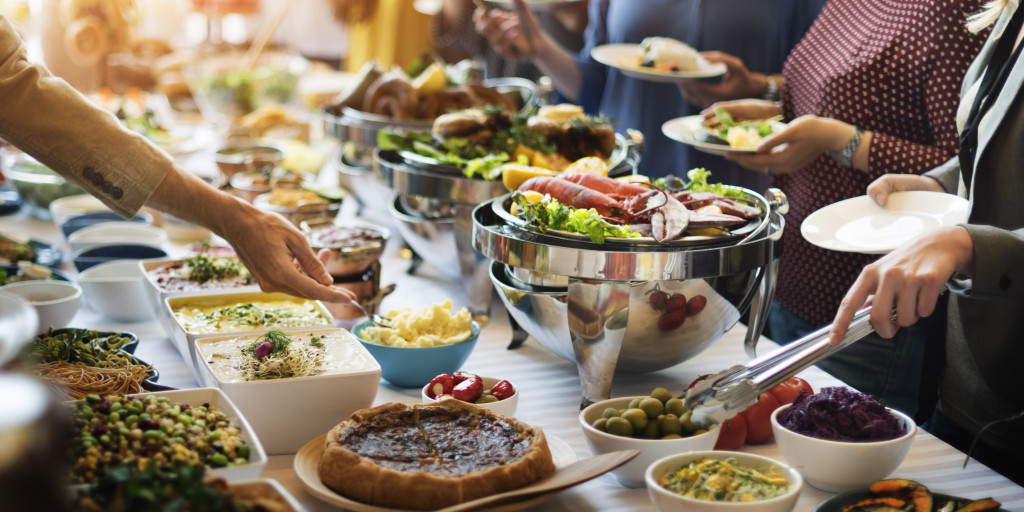As one gets older, they begin to lose their energy and find it harder to maintain their stamina. This can be counteracted by building a healthy meal plan that gives you fresh and nutritious foods. Older bodies take longer to recover from injuries and illnesses. Maintaining a healthy diet that helps you be fit and strong, you avoid the injuries that come with weakness or lack of flexibility. A healthier body is also more likely to recover better from an illness with fewer lingering effects.
Your appetite can be harder to maintain as you get older or battle a serious disease. But you are more likely to convince your family and home care aide that you can stay independent if you make a real effort to eat nutritious meals every day.
Try to work with your reduced metabolism by eating high protein foods so that you do not have to eat as much but still gain the needed calories and nutrition. Ask your doctor to recommend a nutritionist who can help you identify the best foods for your health and suggest ways to make eating them more palatable and fun.
Learn About Food
Take the time to learn about the nutrition content of different foods. This will help you identify the foods that can help you be active, maintain stamina, and give you energy. It will also help you to avoid the foods that make you lethargic, trigger digestive distress, or raise your blood sugar too high.
Learn about the difference between protein and lean protein, as well as the vitamins and minerals you receive from different vegetables. Find out as much as you can about fruits, seafood, beans, and the difference between refined grains and whole grains. Not only can you put your newfound knowledge to good use by helping your own diet, but you can also help your friends eat better without sacrificing taste and satisfaction.
Eat Colorful Food
A good way of knowing that you’re eating nutritiously is to have a colorful plate. If every food on your plate is shades of the same color, it is unlikely that it contains many necessary vitamins or the fiber you need for good digestion.
The five food groups must be represented in at least two meals out of your day. Fruits can be a dessert, or you can blend them with sorbet and green leafy vegetables to make a smoothie. Grains and vegetables can help you feel full and give you the needed fiber to ensure your bowels avoid stress and regular movement.
These foods should also take up the majority of your portion sizes. Protein-rich foods like chicken and salmon can be prepared in various interesting ways and add to your enjoyment of your meals.

Drink More
You need to start drinking more water to help you stay hydrated. Your skin and digestion will benefit greatly from the added water intake, and you are less likely to feel tired easily. It can be difficult to drink water because your sense of thirst may lessen with age and water is tasteless. Consider flavoring your water with dehydrated fruits to make it more palatable.
Coffee can also count towards your daily hydration amount but take note that adding sugar and cream might take away its general healthiness. Using a sugar substitute or drinking plain black coffee s a good way to stay hydrated without boring you the way that water might.
In addition, consider keeping a tumbler of water with you at all times. This way, you can take small sips throughout the day and stay hydrated without having to drink large glasses of water.
Explore Different Seasonings
Salt and sugar can become unhealthy for people as they age and develop health conditions that can be triggered. Salt is bad for people with hypertension and high blood pressure. It has been linked to the risk of stroke. Sugar is a cause of diabetes. It can bring the onset of the disease at a younger age if you have a genetic propensity. It can put you at risk of heart disease and worsen chronic inflammation.
Consider trying herbs and spices such as cayenne, basil, black pepper, rosemary, cinnamon, and vanilla to add flavor to your food. You can still enjoy a nice meal and not worry about feeling sickly afterward.
Learning about nutrition, reading nutrition facts labels, and keeping track of calories and everything else can be a lot for someone. If it makes you feel overwhelmed, you can consider looking for resources that can help you eat better without learning a new way of life.
Inquire with your aide or ask a family member to look into nutrition assistance programs for senior citizens. The government and non-profit organizations conduct these programs. You can find one that helps you to eat healthy meals and maintain your health.

